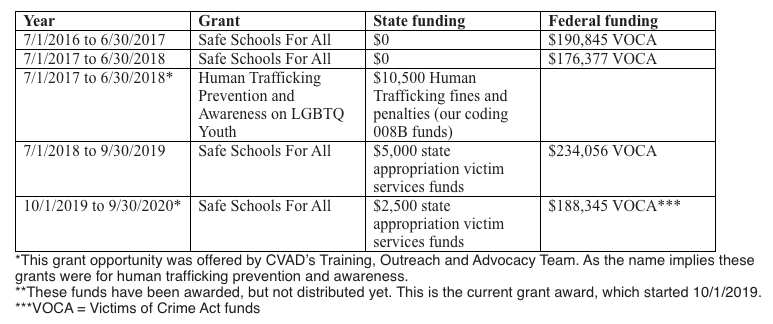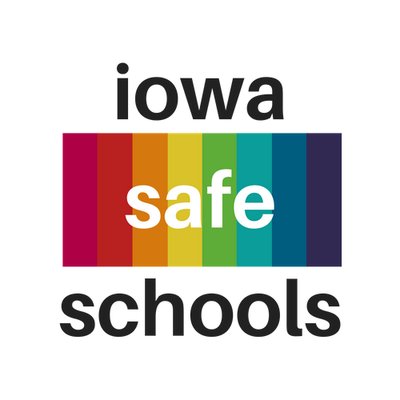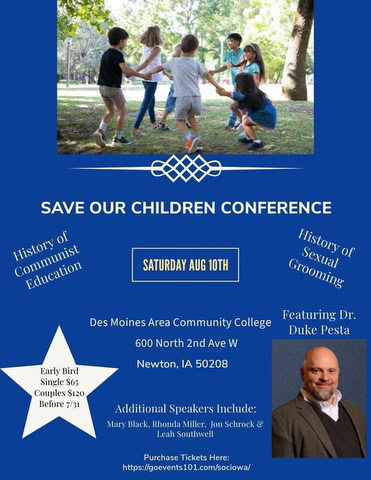Iowa Safe Schools has been in the spotlight since Nov. 20 when it flew the transgender pride flag at the Iowa Capitol on Nov. 20. Since then, many people have asked what is Iowa Safe Schools?
According to the group’s website, Iowa Safe School’s mission is to provide safe, supportive and nurturing learning environments and communities for LGBTQ and allied youth through education, outreach, advocacy and direct services.
The group was founded in 2002 and became a reality through the legislature in 2007. In 2016, Iowa Safe Schools launched a GSA (Gay-Straight Alliance) Network program, with the mission of empowering students to create safe spaces in Iowa schools through youth activism and community support.
In 2017 it launched the Queer Campus Coalition, with the mission of supporting LGBTQ students pursuing post-secondary education in Iowa.
In 2018 it hosted Pride Camp for the first time. It’s the only LGBTQ youth summer camp of its kind in the Midwest.
After finding out the flying of the transgender flag went against the rules of the Capitol building, and Iowa Safe Schools organized it, I wondered if the group receives taxpayer dollars.
It does.
The official name of the group is GLBT Youth in Iowa Schools Task Force. It does business as Iowa Safe Schools. And since 2014, it’s received $708,966 taxpayer dollars.
According to the Crime Victim Assistance Division of the Attorney General’s Office, GLBT Youth in Iowa Schools Task Force has received $18,000 in state funding and $789,623 in federal funding since Fiscal Year 2017. (This number is higher than the previous number because the AG Office is including money to be paid out through Sept. 30, 2020).
The Crime Victim’s Assistance Division of the AG’s Office publishes a funding opportunity, including who is eligible and what kind of services can be funded and what the priorities are for funding, making it a competitive grant process. The AG Office ultimately decides where the grant money goes.
From July 1, 2016-June 30, 2017, the group received $190,845 in Victims of Crime Act Funds (VOCA).
From July 1, 2017-June 30, 2018, the group received $176,377 in VOCA funds.
From July 1, 2018-Sept. 30, 2019, the group received $234,056 in VOCA funds.
And, from Oct. 1, 2019-Sept. 30, 2020, the group will receive $188,345 in VOCA funds.

“The intent of the VOCA initiatives was to reach crime victims not previously served, underserved or not accessing traditional victim services,” according to Lynn Hicks, communications director in the AG’s Office. “Iowa Safe Schools has used and is using the grant money to develop several anti-bullying and victim services initiatives, including developing an app for youth to report incidents, expanding services for college-age youth, developing and improving web platforms and acquiring other technology, expanding mental health services and hiring and training staff.”
According to a release from the Iowa AG Office, in order to be eligible for a VOCA Grant, programs must be operated by a public or nonprofit agency, or a combination of such agencies, and provide direct services to crime victims. These programs include, but are not limited to:
*Sexual abuse and rape treatment centers
*Domestic abuse programs and shelters
*Child abuse programs
*Prosecutor based victim services
*Other community-based victim coalitions; and
*Support programs including those who serve survivors of homicide victims.
*Programs must also demonstrate a record of providing effective services to crime victims. *This includes having community support and approval of its services, a history of providing direct services in a cost-effective manner, and financial support from other sources.
VOCA was established in 1984. The purpose of VOCA is to provide high quality services that directly improve the health and well-being of victims of crime with priority given to victims of child abuse, domestic violence, sexual assault and services for previously underserved victims. For the purpose of the program guidelines, services are defined as those efforts that:
*Respond to the emotional and physical needs of crime victims;
*Assist primary and secondary victims of crime to stabilize their lives after victimization;
*Assist victims to understand and participate in the criminal justice system, provide victims of crime with a measure of safety and security such as boarding up broken windows and replacing or repairing locks.
States have sole discretion for determining which organizations will receive funds, and in what amounts.
In addition to that federal funding, the AG Office gave the group $10,500 through the Human Trafficking Victim Fund. That was grant money for Human Trafficking Prevention and Awareness on LGBTQ Youth.
There’s also $7,500 from state appropriation victim services funds.
Returning to other sources of taxpayer dollars:
*Iowa Safe Schools has received $67,083.80 through Iowa College Aid. All of that is grant money as well.
*There’s another $17,107.50 for what appears to be professional administrative services from the Department of Education for “Now Is The Time,” a federal initiative to make schools safer and increase youth and children’s access to mental health services and supports.
*And, there’s $11,740 from the Iowa Department of Public Health through the department’s gifts and grants fund.












